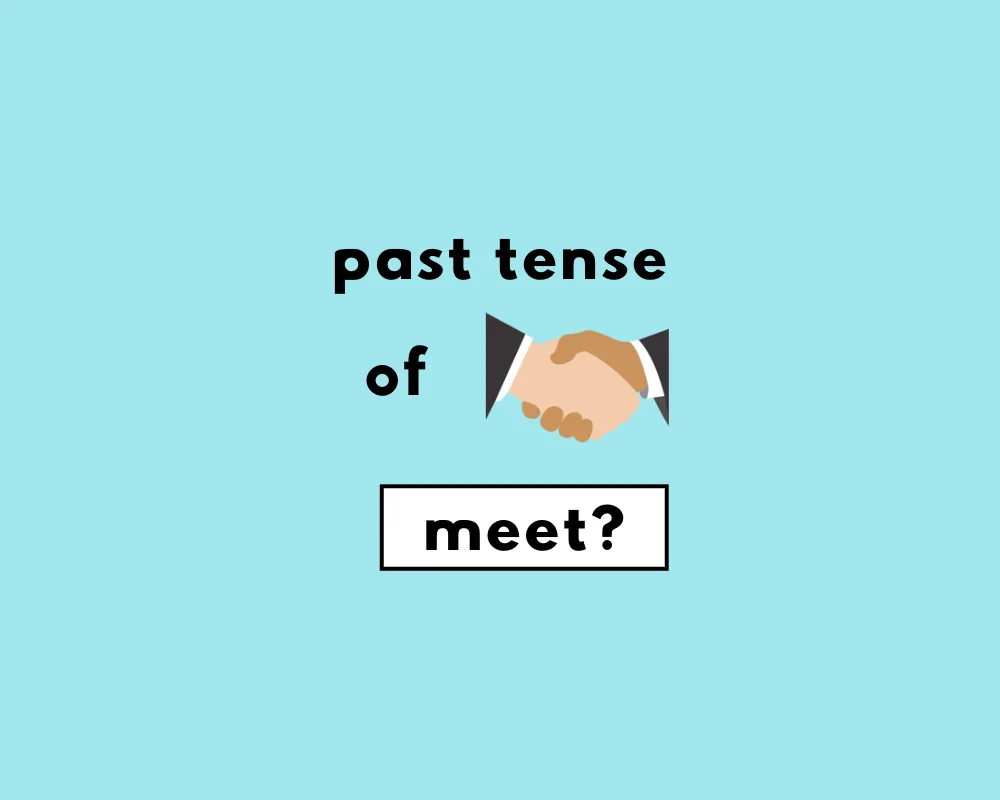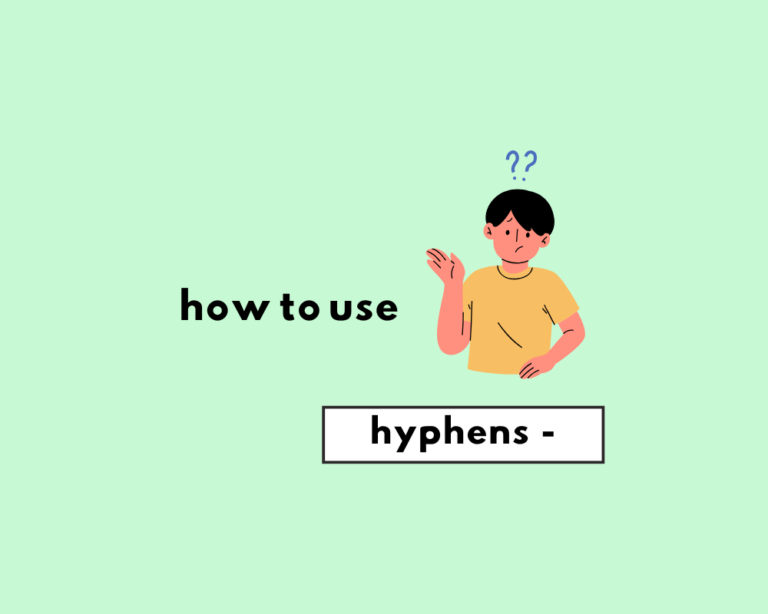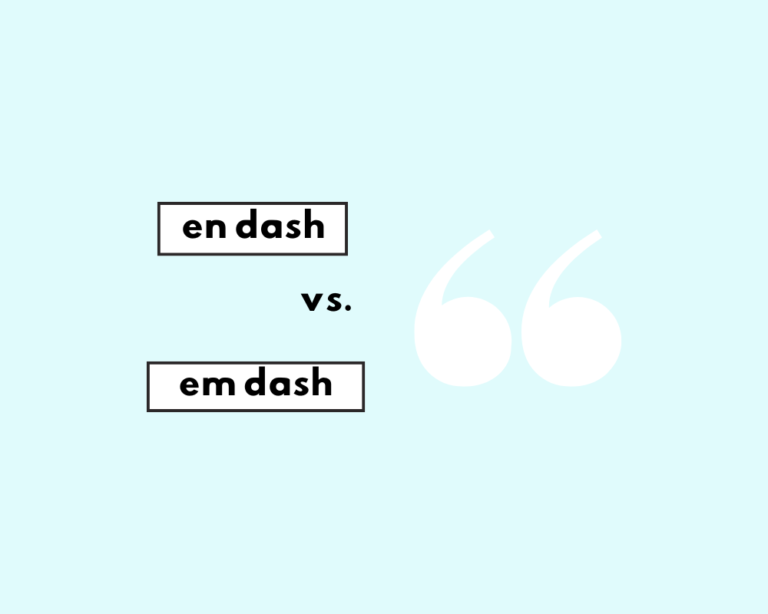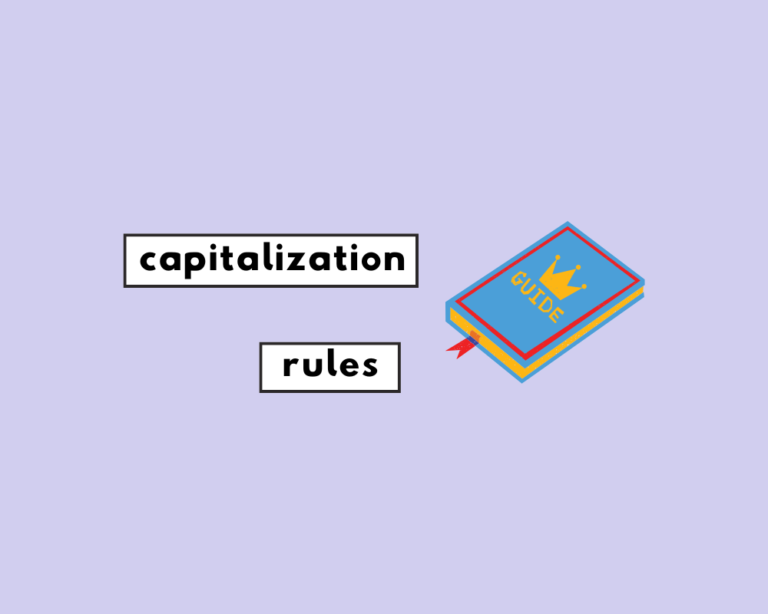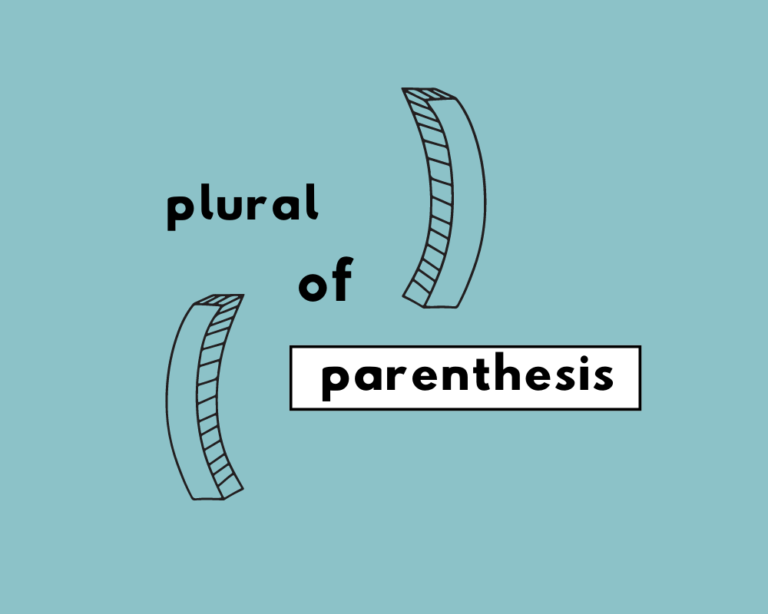
Contents
Toggle
What’s the past tense of “meet”?
The past tense of meet is met, not meet or meeted. As an irregular verb, the past tense of meet can be hard to remember; so it’s a good thing the past participle and past tense forms of meet are exactly the same. At least there’s no need to worry about a third spelling and pronunciation of meet (not to be confused with meat from animals, though they’re pronounced the same).
Verb tenses of meet
The verb, meet means “to come into the presence of”. It can also mean “to be introduced to”, and can be used as a noun when referring to a gathering.
| present | past | future | |
| simple | I meet | I met | I will meet |
| continuous | I am meeting | I was meeting | I will be meeting |
| perfect | I have met | I had met | I will have met |
| perfect continuous | I have been meeting | I had been meeting | I will have been meeting |
Meet is in the present tense. Met is in the past tense. Met is the past participle.
Is meet/met a regular or irregular verb?
Meet is an irregular verb as its past tense form is met. The difference between regular and irregular verbs is: Regular verbs end in -ed in their past tense forms. Irregular verbs end in something other than -ed. Meet belongs to the class of verbs with two forms altogether:
| base verb | past tense | past participle |
| spit | spat | spat |
| meet | met | met |
| tell | told | told |
| win | won | won |
| shoot | shot | shot |
| lose | lost | lost |
Is met the past tense or past participle? What’s the difference?
Met is the past tense and past participle of meet. The difference is in the usage—the past tense indicates that something happened in the past, while the past participle can be combined with an auxiliary verb to form a compound verb. The auxiliary verbs were, was, and had are often used with the past participle met.
You may even encounter had been met— a compound verb with three verbs: ‘had’, ‘been’, and ‘met’. Met would be used on its own when writing in the past simple tense, but compound verbs such as had met would be used in the past perfect tense. While the past simple tense doesn’t indicate any particular order of events, the past perfect tense does.
Note that were and was are necessary when using met to talk about non-living things such as reception, meaning their usage does not necessarily indicate past perfect. When talking about meeting criteria, expectations or quotas, you may use were/was met or met/had met depending on whether you would like to use the passive or active voice.
Compare these sentences:
1. I met my new teacher today.
2. She was late because she had met someone interesting on the way.
3. His expectations had been met, but he was still unsatisfied.
4. All their ideas were met with ridicule.
5. I was met with a difficult decision.
6. We were met with looming gates and cobblestone roads.
7. Here’s more on participles to help you meet your grammar goals!
Examples of the present tense meet in context
1. The shore is where land meets water.
2. Angela, meet Paul.
3. Our dogs are meeting for the first time!
4. He doesn’t like meeting new people.
5. Everyone wonders how she meets so many celebrities.
Examples of the past tense of met in context
1. They met back in high school.
2. The production quota was not met.
3. His change of career was met with disapproval from his parents.
4. We had met a few times before, but we only really started talking recently.
5. She finally met her sister-in-law.
Synonyms of meet/met
- gathering
- encounter
- assemble
- converge
- to be introduced
Origin of the verb meet/met
From etymology online on meet (v.):
Middle English mēten, from Old English metan “to find, find out; fall in with, encounter, come into the same place with; obtain,” from Proto-Germanic *motjanan (source also of Old Norse mæta, Old Frisian meta, Old Saxon motian “to meet,” Gothic gamotijan), from PIE root *mod- “to meet, assemble.” Related to Old English gemot “meeting.”
Learn more about verbs
- What are regular and irregular verbs?
- Transitive and intransitive verbs?
- What are verbs?
- What’re personal pronouns?
- What’s the difference between they’re, their, and there?
- Whose vs who’s?
Sources
- Definition of meet.
- Etymology online, origin of meet.

